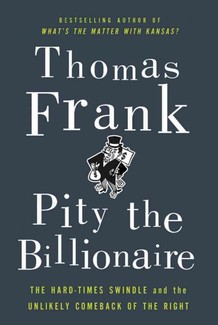When I picked up Jamie Galbraith’s new book, “Inequality and Instability,” (OUP) I was expecting something pretty simple: a pithy narrative of how inequality in the 2000s destabilized the world economy by forcing demand to grow through a credit bubble. However, Galbraith did waited until the very end to cover that argument. Instead, he spent the majority of the book using inequality as a lens to recast our economic history from the last several decades.
For those seeking a Krugman-esque polemic that weaves together narrative threads on how the crisis happened (as I was), this book may be disappointing. It offers a rich set of essays on inequality that draw from careful work of applied statistics. Galbraith develops a novel approach to dealing with income and wage data for inequality statistics, and then hops around the globe, retelling the stories of regions and countries alike in light of data on inequality. By sector, region, and year, Galbraith shows how countries from Cuba to Argentina to Norway have changed over time.
His data yields rich insights; for example, based on a careful study of US data, he concludes,
There are practically no jobs to be had in the winning sectors…the American economy became leveraged, in such a way that its performance as a whole came to depend on the possibility of a very small number of people becoming very rich in very limited lines of work.
Piketty and Saez have offered data that shows the fractal-like qualities of the entire income distribution, but Galbraith’s data, by sector and region, show that economic geography matters deeply.
Later, writing about Argentina and Brazil, Galbraith finds that
declining inequality in this part of Latin America appears directly linked to a weakening of the political forces that supported neoliberal globalization.
Galbraith’s sector-level view of the economy leads to some key conclusions about finance as well- he finds that finance drives inequality, and as it siphons more and more of total income, its cycles drive employment as well. With these insights in hand, Galbraith does eventually get around to the argument I was waiting for:
The financial crisis…was the consequence of a deliberate effort to sustain a model of economic growth based on inequality that had, in the year 2000, already ended….when the collapse came, it would utterly destroy the financial sector.
Of course, finance’s role in the economy persists heavily, and economists and politicians alike continue to debate its value. What is clear from Galbraith’s work, though, is that growth based on finance will likely not be shared, and thus, not sustained.
Read Full Post »
